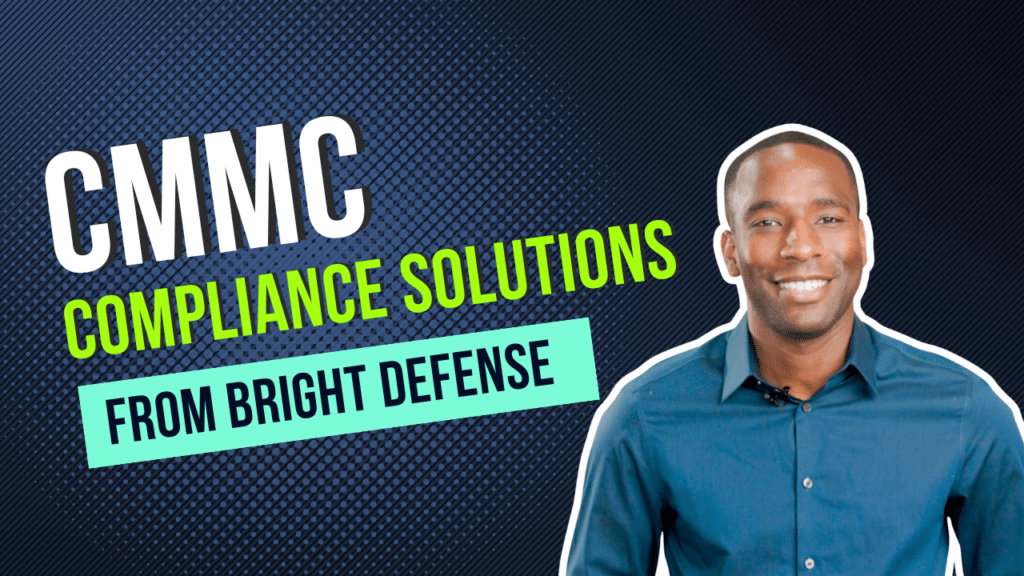
John Minnix
April 11, 2025
SOC 2 For Startups: The Definitive Guide
Establishing trust with customers and stakeholders is crucial for startups. One significant milestone in this trust-building journey is achieving SOC 2 compliance. 60% of companies prefer to work with a startup that has achieved SOC 2. Additionally, 70% of venture capitalists prefer to invest in a startup that has achieved SOC 2.
This comprehensive guide aims to demystify SOC 2 for startups. It outlines why SOC 2 is essential, what it involves, and how to navigate the compliance process effectively. Let’s begin by exploring what SOC 2 compliance entails and why it matters more than ever for startups.
Understanding SOC 2 Compliance
At its core, SOC 2 is a framework designed to ensure that service organizations manage customer data securely and in a manner that protects the organization’s and its clients’ interests. Unlike other compliance certifications that offer a one-size-fits-all checklist, SOC 2 is highly customizable. This allows businesses to tailor their controls to their specific operations and risks. This section will break down the critical aspects of SOC 2, providing startups with a solid foundation to understand what SOC 2 is and how it applies to their operations.
What is SOC 2?
SOC 2 is a voluntary compliance standard developed by the American Institute of Certified Public Accountants (AICPA) for service organizations. It specifically addresses how companies should manage customer data based on five Trust Services Criteria (TSC):
- Security: The protection of system resources against unauthorized access.
- Availability: The accessibility of the company’s services as stipulated by a contract or service level agreement (SLA).
- Processing Integrity: The assurance that system processing is complete, valid, accurate, timely, and authorized.
- Confidentiality: The protection of confidential information from unauthorized disclosure.
- Privacy: The protection of personal information in accordance with the company’s privacy notice and principles consistent with the AICPA’s generally accepted privacy principles.
Not all trust service criteria are required for all startups. Many focus on just security, availability, and processing integrity. Confidentiality and privacy don’t apply to many startups and can be scoped out of the audit process.

SOC 2 Type I vs. Type II
Within the SOC 2 framework, there is both a Type I and Type II report. The Type I report assesses the design of an organization’s security controls at a specific point in time, offering a snapshot of the company’s commitment to security. The Type II report examines the operational effectiveness of those controls over a defined period, typically six months. This provides a more dynamic and ongoing view of how well the company’s security practices are implemented and maintained.
Most of our customers elect to pursue SOC 2 Type II, as it has more credibility in the marketplace. For clients needed to achieving compliance more quickly, a SOC 2 Type I report can be a good first start.
Let’s outline the differences further, to see which is right for your organization.
SOC 2 Type I: Design of Controls at a Specific Point in Time
- Purpose and Scope: The SOC 2 Type I report evaluates the design of an organization’s controls at a specific point in time. It focuses on whether the company’s systems and control designs are suitably designed to meet the relevant Trust Services Criteria.
- Audit Process: During a Type I audit, an auditor assesses the documented controls and processes in place at the company to determine if they are appropriately designed to achieve the desired objectives. This assessment does not extend to the operational effectiveness of these controls over time.
- Ideal For: Startups that are in the early stages of implementing their security and privacy controls often begin with Type I. It’s a valuable first step in the compliance journey, providing an initial benchmark for the organization’s control environment and setting the stage for a Type II report.
- Benefits:
- Provides a quicker path to demonstrating commitment to SOC 2 principles, as it requires less time than a Type II audit.
- Helps identify gaps or weaknesses in control designs early, allowing for remediation before proceeding to a Type II audit.
SOC 2 Type II: Operational Effectiveness of Controls Over Time
- Purpose and Scope: SOC 2 Type II reports go beyond the design of controls, assessing the operational effectiveness of these controls over a defined period, typically six months or more. This report provides a more comprehensive view of how effectively a company’s controls are functioning.
- Audit Process: The Type II audit involves detailed testing of the organization’s controls over time to verify their operational effectiveness. Auditors will review the company’s systems and procedures, test control implementations, and evaluate the consistency of control application throughout the audit period.
- Ideal For: Established startups and those looking to engage with larger clients or enter highly regulated industries. A Type II report is often a requirement in contracts or RFPs from enterprises and organizations with stringent security requirements.
- Benefits:
- Offers a higher level of assurance to clients, partners, and stakeholders, demonstrating not just the adequacy of control design but their effective operation over time.
- Enhances the company’s credibility and trustworthiness by providing evidence of sustained compliance and operational integrity.
Choosing Between Type I and Type II
For many startups, the journey toward SOC 2 compliance begins with a Type I report. This can serve as a milestone indicating that the appropriate frameworks and control designs are in place. This is often followed by the pursuit of a Type II report, which demonstrates to clients and partners that the startup not only talks the talk but walks the walk when it comes to data security and privacy.
The decision on whether to pursue Type I, Type II, or both reports should be based on several factors:
- Business Needs and Client Expectations: If your startup is looking to work with large enterprises or in regulated sectors, a Type II report might be a non-negotiable requirement.
- Stage of Business: Early-stage startups might find a Type I report a cost-effective way to assess and demonstrate their compliance posture initially.
- Resources and Readiness: Preparing for a Type II audit is more resource-intensive and requires a history of operational data. Startups must evaluate their readiness and resource availability before committing to this path.
While both SOC 2 Type I and Type II reports validate a startup’s security practices, they do so at different depths and stages of the compliance journey. Understanding and choosing the right type of report to pursue can position your startup to meet its compliance goals, satisfy customer requirements, and build a robust security posture that supports sustainable growth.

Why SOC 2 Matters for Startups
For startups, particularly in the tech and SaaS industries, achieving SOC 2 compliance is not just about checking a box. It’s a strategic move that can significantly impact the company’s growth, reputation, and ability to compete in the marketplace. This section explores the benefits of SOC 2 compliance for startups and why it’s a crucial step in their business development journey.
Building Trust with Customers and Stakeholders
Consumers are increasingly wary of where and how their data is stored and used. For startups, establishing trust from the get-go is crucial. SOC 2 compliance assures customers and stakeholders that their data is handled securely and in accordance with high standards.
70% of leaders told a recent Vanta survey that improved security and compliance positively impacted their business thanks to improved customer trust and reputation. This trust is invaluable, often becoming a decisive factor for customers choosing between competitors.
Competitive Advantage in the Market
The startup ecosystem is fiercely competitive, with countless companies vying for attention, funding, and market share. SOC 2 compliance can serve as a differentiator. It signals potential customers, investors, and partners that your startup is serious about data security and privacy.
44% of companies now require cybersecurity as part of their RFP process. This is even more prevalent when your startup is seeking to do business with larger organizations. SOC 2 compliance opens doors to more significant business opportunities. It also positions your company as a leader in security and reliability.
Legal and Regulatory Requirements
As privacy laws and regulations around the world become more stringent, startups need to be proactive in ensuring their compliance. Regulations like GDPR in Europe, CCPA in California, TX-RAMP in Texas, and others across the globe have made data security and privacy a legal requirement. SOC 2 compliance aligns closely with the principles underlying many of these regulations, helping startups mitigate legal risks and avoid costly fines.

Startups That Benefit Most from SOC 2 Compliance
For startups handling sensitive data and aiming to scale quickly, SOC 2 can be a critical step toward securing their operations and building trust with stakeholders. This section delves into the types of startups that stand to benefit significantly from SOC 2 compliance.
Startups Handling Sensitive Data
Startups that manage, store, or process sensitive data, including personal information, health records, or financial data, are prime candidates for SOC 2 compliance. The rigorous internal controls and security standards mandated by SOC 2 provide a framework for protecting data against breaches. Compliance demonstrates a startup’s commitment to data security. It reassures existing and prospective customers of the integrity and safety of their information.
Startups Seeking Enterprise Clients
For startups looking to do business with enterprise clients, SOC 2 compliance is often a non-negotiable requirement. Large organizations, mindful of their reputational risks and regulatory obligations, require assurance that their third-party service providers adhere to the highest data security and privacy standards. SOC 2 compliance signals to these larger customers that a startup operates with rigorous internal controls and security practices.
Startups in Regulated Industries
Industries such as finance, healthcare, and education often come with stringent regulatory requirements around data security and privacy. For startups operating in these sectors, SOC 2 compliance is a clear way to meet or exceed industry-specific regulations. Demonstrating compliance with SOC 2 can streamline regulatory approval processes. It also facilitates smoother audits, reducing your administrative burden.
Startups Eyeing Rapid Growth and Scaling
For startups with ambitions of rapid growth, particularly those aiming to attract investment or acquire larger customers, SOC 2 compliance offers a competitive edge. It serves as a tangible demonstration of the startup’s commitment to security and operational excellence. It makes your startup more attractive to investors and prospective customers. In a crowded market, SOC 2 compliance can be a differentiator, showcasing the startup’s maturity and ability to scale.

Preparation for SOC 2 Compliance
Achieving SOC 2 compliance is a significant milestone for any startup, especially in the tech and SaaS sectors. This section outlines the steps startups should take to prepare for SOC 2 compliance.
Conducting an Internal Review and Gap Analysis
- Initial Assessment: Begin by conducting an internal review of your current data security and privacy practices. Understand the specific SOC 2 criteria relevant to your startup’s operations.
- Gap Analysis: Identify any gaps between your current practices and the SOC 2 requirements. This involves assessing your information security policies, procedures, and controls against the SOC 2 Trust Services Criteria (TSC).
- Action Plan: Develop a detailed action plan to address identified gaps. Prioritize actions based on risk, impact, and resources required.
Choosing the Right Trust Services Criteria for Your Startup
- Customization to Your Needs: Not all SOC 2 TSCs may apply to every startup. Determine which of the five criteria (Security, Availability, Processing Integrity, Confidentiality, Privacy) are relevant to your services and operations.
- Focus on Core Areas: Most startups will find the Security criterion mandatory. The relevance of others will depend on your specific business model and the nature of the data you handle.
Developing Policies and Procedures That Align with SOC 2 Requirements
- Documentation: Develop comprehensive policies and procedures that address the operational and security practices required for compliance. This documentation should cover everything from employee onboarding and training to incident response and data management.
- Implementation of Controls: Implement the necessary controls as outlined in your policies. This could include physical security measures, encryption practices, network security protocols, and more.
Tools and Software That Can Help Manage Compliance
- Automated Tools: Leverage automated tools and software designed to streamline the SOC 2 compliance process. These can help with everything from continuous monitoring and logging to incident management and policy enforcement. Drata, Vanta, and SecureFrame are all popular choices for compliance automation.
- Consultation and Expertise: Consider engaging with a consultant or a firm specializing in SOC 2 compliance. Their expertise can provide invaluable guidance through the preparation process, especially for startups navigating this landscape for the first time. Bright Defense specializes in SOC 2 for startups. We save you time and money in the compliance process, allowing you to focus on scaling your business operations.
Employee Training and Awareness
- Comprehensive Training: Ensure all employees are trained on your company’s policies and the importance of SOC 2 compliance. Regular training sessions can help maintain awareness and adherence to necessary practices. Security awareness training providers like KnowBe4 can be crucial value-adds.
- Culture of Security: 85% of data breaches were caused by human error. 50% of employees are unaware of their company’s cybersecurity policies and procedures. Fostering a culture of security within your organization minimizes the risk of a data breach.
Continual Improvement and Monitoring
- Ongoing Monitoring: Implement systems for the continuous monitoring of your controls to ensure they remain effective over time.
- Feedback Loop: Establish a feedback mechanism to continuously improve your security posture and compliance processes based on audit findings, employee feedback, and evolving threats.
Preparing for SOC 2 compliance is a comprehensive process that requires a deep dive into your startup’s current practices, a strategic approach to aligning with SOC 2 standards, and the implementation of rigorous controls. By taking these preparatory steps, startups can smooth their path to achieving SOC 2 compliance and significantly enhance their overall security and data protection practices.

Common Challenges and Solutions
Achieving SOC 2 compliance can be a challenging journey for startups, often marked by hurdles that can seem daunting, especially for those with limited resources or experience in data security and privacy practices. This section explores common challenges startups face during the SOC 2 compliance process and offers practical solutions to navigate these obstacles effectively.
Resource Constraints
Challenge: Many startups operate with limited financial and human resources, making the comprehensive SOC 2 compliance process seem overwhelming.
Solution: Prioritize and phase your compliance efforts. Start with a more attainable goal, such as a SOC 2 Type I report. Use automated tools to streamline and reduce the workload. Consider outsourcing specific tasks to specialized consultants or service providers like Bright Defense.
Knowledge and Expertise Gaps
Challenge: The complexity of SOC 2 requirements can be challenging for startups without in-house compliance expertise.
Solution: Leverage external expertise through consultants or compliance firms that specialize in SOC 2. Additionally, invest in training for your team to build internal expertise over time.
Maintaining Compliance Over Time
Challenge: SOC 2 is not a one-time achievement but requires ongoing effort to maintain compliance as your startup evolves.
Solution: Implement continuous monitoring tools and establish internal processes for regularly reviewing and updating your security measures and policies. Foster a culture of compliance and security awareness within your team. We recommend tools like Drata, KnowBe4, and JumpCloud to boost security controls through automation.
Balancing Speed to Market and Compliance
Challenge: Startups are often under pressure to launch products quickly. This can conflict with the time-consuming process of achieving SOC 2 compliance.
Solution: Integrate compliance considerations into your product development lifecycle from the start. This proactive approach helps ensure that security and privacy are built into your product, reducing delays and rework.

Leveraging SOC 2 Compliance for Growth
Achieving SOC 2 compliance is not just about meeting a set of security standards. It’s a strategic asset that can propel a startup’s growth and competitive advantage. Here’s how startups can leverage SOC 2 compliance to fuel their growth strategy:
Marketing Your SOC 2 Status
Promote your SOC 2 compliance as a key differentiator in your marketing materials, proposals, and sales conversations. This can build trust with potential customers and partners, especially those in industries where data security is paramount.
Integrating Compliance into Business Strategy
View SOC 2 compliance as an integral part of your business strategy, not just a regulatory requirement. This mindset encourages the implementation of best practices in security and privacy that can improve operational efficiency and reduce risk.
Enhancing Customer Trust and Retention
Use your SOC 2 compliance as a tool to enhance trust with your existing customers, reinforcing their decision to do business with you. This trust can lead to increased customer retention and opportunities for upselling and cross-selling.

The Value of a SOC 2 Consultant for Startups
As startups embark on the journey toward SOC 2 compliance, the path can be fraught with complexities and challenges that are both time-consuming and resource-intensive. In this landscape, partnering with a specialized SOC 2 consultant such as Bright Defense can be a game-changer. This section explores the benefits of engaging a dedicated SOC 2 consultant and how it can significantly streamline the compliance process for startups.
Expertise and Experience
- Deep Knowledge: SOC 2 consultants bring a wealth of knowledge and experience to the table. They are well-versed in the nuances of SOC 2 compliance and can navigate the intricacies of the Trust Services Criteria with ease. Their expertise ensures that your startup doesn’t have to go through a trial-and-error process, saving both time and resources.
- Best Practices: Consultants like Bright Defense have worked with a diverse range of clients. This experience allows them to bring industry best practices to your startup, ensuring that your SOC 2 compliance efforts are both efficient and effective.
Streamlined Compliance Process
- Gap Analysis and Remediation: One of the first steps in the SOC 2 compliance journey is identifying gaps in your current controls and practices. Bright Defense can conduct a thorough gap analysis and provide actionable recommendations for remediation, tailored to your startup’s specific needs and resources.
- Documentation and Policy Development: Developing the necessary policies and documentation for SOC 2 compliance can be daunting. SOC 2 consultants can help create and refine your documentation, ensuring it meets the compliance standards without pulling your team away from their core duties.
Cost and Time Savings
- Efficiency: By leveraging the expertise of a SOC 2 consultant, startups can avoid common pitfalls and accelerate the compliance process, achieving SOC 2 status more quickly. This efficiency can lead to significant cost savings, as the longer the compliance process takes, the more resources it consumes.
- Focused Resources: Engaging with a consultant allows your team to remain focused on your startup’s core objectives and product development, rather than getting bogged down by the complexities of SOC 2 compliance.
Ongoing Support and Maintenance
- Continuous Compliance: SOC 2 compliance is not a one-time achievement but requires ongoing maintenance and updates. Consultants like Bright Defense can provide continuous support, helping your startup stay compliant as it grows and evolves.
- Audit Preparation and Support: Preparing for the SOC 2 audit can be stressful. A consultant can help prepare your team for the audit, attend the audit to provide support, and assist with any follow-up actions or recommendations.
Tailored Solutions
- Customized Approach: Every startup has unique needs, risks, and challenges. Bright Defense takes a customized approach to SOC 2 compliance, ensuring that the solutions and strategies are perfectly aligned with your startup’s specific requirements.

Conclusion
SOC 2 compliance is a significant undertaking for startups, but it’s also a powerful tool for building trust, enhancing security, and achieving sustainable growth. By navigating the common challenges with strategic solutions and leveraging SOC 2 status as a growth driver, startups can set themselves apart in a competitive marketplace. Achieving and maintaining SOC 2 compliance demonstrates a startup’s commitment to data security and privacy, earning the trust of customers, investors, and partners alike. This commitment, in turn, lays a solid foundation for long-term success and resilience in the digital age.
Remember, SOC 2 compliance is not just a badge to be earned but a commitment to operational excellence and customer trust that requires ongoing effort and dedication.
Bright Defense Delivers SOC 2 For Startups!
If your startup is considering SOC 2 compliance, Bright Defense can help. Our monthly engagement continuous compliance service model delivers a robust security program to help your startup achieve SOC 2. Our services include a compliance automation platform to increase efficiency and lower the cost of compliance. Once compliance is achieved, we constantly enhance your security program to keep up with the evolving threat landscape and compliance standards.
We also deliver continuous compliance solutions for other compliance frameworks, including ISO 27001, HIPAA, CMMC, and PCI. Additional services include gap analysis, security risk assessments, security awareness training, multi-factor authentication, disaster recovery planning, and more.
Get started on your SOC 2 compliance journey today with Bright Defense!
Frequently Asked Questions
What Is SOC 2 for Startups?
SOC 2 for startups refers to the process by which emerging companies demonstrate their commitment to data security by adhering to the American Institute of Certified Public Accountants’ (AICPA) standards for managing customer data. This involves implementing rigorous security controls, policies, and procedures to protect sensitive information and establishing a strong security posture.
How Do Startups Determine Appropriate Security Controls?
Startups should begin by conducting a thorough risk assessment to identify potential security risks specific to their operations. Based on this assessment, startups can tailor their security measures to address these risks effectively, ensuring their security program is both comprehensive and aligned with SOC 2 standards.
What Does Security Training for Employees Involve?
Security training for employees aims to foster a security-first culture within the organization. This involves educating staff on standard security processes, the importance of maintaining the integrity of confidential data, and how to respond to security incidents. Effective training ensures that all team members understand their role in upholding the organization’s security controls.
How Do You Choose an Auditing Firm for SOC 2 Compliance?
Choosing an auditing firm for a SOC 2 compliance audit involves researching firms with extensive experience in conducting SOC 2 audits within your industry. Look for a firm that not only understands the technical requirements of SOC 2 but also has a track record of working with startups to operationalize security controls effectively.
Why Is a Security Program Important for SOC 2 Compliance?
A comprehensive security program is essential for SOC 2 compliance as it demonstrates the organization’s ongoing commitment to securing its operations and data. This program should include regular security training, a robust risk assessment process, and the implementation of effective security measures to mitigate identified security risks.
How Can Startups Use SOC 2 to Improve Their Security Posture?
Startups can use SOC 2 as a framework to strengthen their security posture by systematically addressing the security controls and practices required for compliance. This process encourages startups to formalize their approach to security, from assessing and mitigating risks to implementing and monitoring security measures consistently.
What Is Involved in a SOC 2 Compliance Audit?
A SOC 2 compliance audit involves a comprehensive review of the organization’s security controls to ensure they meet the SOC 2 standards. The auditing firm will evaluate the effectiveness of these controls, the organization’s adherence to stated security policies, and the overall maturity of its security program.
How Does SOC 2 Compliance Protect Against Data Breaches?
SOC 2 compliance helps protect against data breaches by requiring startups to implement and maintain robust internal controls and security measures designed to safeguard confidential data. Through regular monitoring and evaluation, startups can identify and rectify vulnerabilities, reducing the risk of security incidents.
How Can Startups Operationalize Security Controls?
Startups can operationalize security controls by integrating them into their daily operations and standard business processes. This includes automating security measures where possible, ensuring security controls are maintained and updated in response to new threats, and embedding security considerations into the development and deployment of new products or services.
What Are the Benefits of Establishing Standard Security Processes?
Establishing standard security processes benefits startups by creating a consistent and repeatable approach to managing security risks. This consistency helps ensure that security measures are effectively implemented and maintained across the organization, improving the overall security profile and compliance posture.
How Can Startups Foster a Security First Culture?
Fostering a security-first culture involves prioritizing security at all levels of the organization, from the executive team to individual contributors. This culture is built through regular security training, clear communication about the importance of security, and encouraging employees to proactively identify and report potential security risks.
How Does SOC 2 Impact an Organization’s Security Profile?
SOC 2 compliance positively impacts an organization’s security profile by demonstrating a commitment to industry-recognized security standards and practices. Achieving and maintaining SOC 2 compliance signals to customers, partners, and stakeholders that the organization takes security seriously and has implemented a robust security program to protect sensitive data.
Get In Touch



